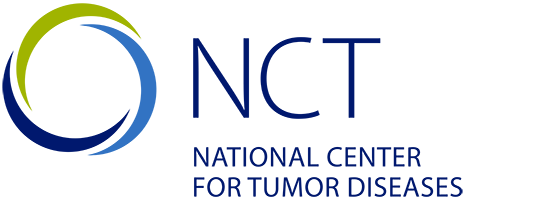About the Patient Experts Conference
Learn. Collaborate. Change.
The annual National Conference “Patients as Partners in Cancer Research” organized by the National Center for Tumor Diseases (NCT) has become an important forum for exchange, new perspectives, and shared learning. Since 2022, patients, physicians, and researchers have been coming together here as equals—openly, honestly, and with great commitment. The goal is to shape cancer research in a way that more strongly incorporates the experiences, needs, and realities of those affected.
Save the Date for 2026!
The next conference “Patients as Partners in Cancer Research” will take place from September 18 to 20, 2026, in Essen. Registration opens in spring 2026.
We look forward to three days full of inspiring talks, interactive workshops, and lively discussions on the active involvement of patients in cancer research. Take this opportunity to network with researchers, clinicians, and patient representatives, and to work together toward a more patient-centered future for cancer research.
Further information about registration and the conference program will follow—so make sure to save the date now!
Contact
If you have any questions about the conference, please contact the coordinator for patient involvement at the NCT:
Dr. Annette Schilling, phone: +49 6221 42-1598, nct-patientenbeteiligung-at-dkfz.de
Read more about the 2025 conference
View photos from the 2025 conference
What do you particularly appreciate about the annual conference as a physician?
As a physician involved in clinical research in surgery, participating in the NCT Patient Expert Conference was an exceptionally enriching experience. It made me realize how essential it is to involve patients in clinical trials from an early stage in order to capture outcomes that truly matter to them.
I was particularly impressed by the open atmosphere, shaped by genuine interest and respectful, equal exchange. The voices of patient representatives offer a perspective that we as physicians cannot have without being personally affected, and that is precisely what makes their contribution to research so valuable. In personal conversations, I also learned a lot about their work, for example in ethics committees—insights that I will certainly take with me into my future research projects. The diversity of participants was sometimes challenging, but it was also what made the discussions so enriching. I hope that more physicians will take part in such formats in the future, because only together can we shape research that truly serves the interests of our patients.
What role does the Patient Expert Conference play in the further development of patient participation in Germany?
For me, the 4th Patient Expert Conference was one of the most significant events on patient participation in 2025. It offered a wide range of opportunities to gain insights, exchange experiences, and build networks. The growing number of participants — extending even beyond the NCT — clearly reflects the increasing importance of this conference for advancing patient involvement in Germany.
In addition to the workshops, which offered many valuable opportunities for sharing experiences, I found the practical ideas particularly inspiring. They demonstrated how dedication and enthusiasm can transform participation into genuine co-creation and even independent projects. I am very pleased that we will have the opportunity to get to know another NCT site in Essen next year.
How does the conference combine scientific findings with patients’ everyday experiences?
Until now, I had only taken part in conferences online, which provided me with a lot of valuable information. At the patient expert conference, however, I realized how important and helpful it is to meet in person, to connect with like-minded people and other patients. I was deeply impressed by the positive atmosphere created by so many people who, despite difficult experiences, appeared cheerful, healthy, open, and supportive. It would be wonderful if this spirit could be shared more widely with the public.
All those affected hope for themselves and their fellow patients that there will be “another bottle in the medicine cabinet” when therapies are no longer effective or recurrences occur. The conference clearly demonstrated that cases once considered hopeless now have good chances of survival, if not complete remission. I particularly enjoyed the presentation “Taming the Beast.” Anyone who hears the word “cancer” and is not personally affected immediately becomes serious and somber, so it is wonderful when humor can be a supportive companion even in such serious situations. The workshops were a welcome break, as the preceding sessions required extremely high levels of concentration.
A final highlight was the series of lectures on cancer prevention, which were far more scientific and detailed than anything I had heard before. They explained, for example, how proper nutrition and exercise affect the body at a molecular level. On Monday, I returned to my strength training sessions highly motivated, now fully aware of what is happening in my body during the exercises.
How does the Patient Expert Conference promote nationwide exchange between patient representatives, researchers, and medical professionals?
The conference is an excellent and important platform for dialogue between patient representatives and experts from across Germany, allowing everyone to learn from one another. Fortunately, patient participation is no longer just a buzzword. It has become a living reality, although it is not yet fully integrated into all clinical structures.
What I find particularly valuable about the conference is the exchange between participants, especially during the workshops, where we patient representatives can learn a great deal from one another.
This year, I would especially highlight the diversity of participants, which ranged from experienced patient representatives to complete beginners. This is a very positive development, although it does present a challenge for experts to address the varying levels of knowledge. At WTZ, we were particularly impressed by how most of the speakers delivered excellent presentations in a way that was understandable and engaging for laypeople.
I would like to extend my sincere thanks to the organizing team—the conference was exceptionally well organized, and the topics were highly relevant and up to date.
Why is the exchange between research, clinics, and patient advocacy so crucial for the future of cancer medicine?
I found the conference to be an invaluable opportunity to bring together perspectives from clinics, research, and patient advocacy. I was glad to see that more and more research projects are incorporating individual patient experiences into their work. This approach is not only scientifically interesting but also promises real, tangible benefits for patients in the future.
What I took away from the conference is that patient involvement in cancer research is gaining increasing attention, yet there is still significant potential for further development. In my view, some bridges remain to be built, particularly regarding the long-term involvement of patients in research projects, to make patient representation even more effective in the future.
The conference is valuable because it brings together researchers, healthcare professionals, and patients, creating a space for exchanging ideas and encouraging all participants to consider different perspectives. This is especially important in oncology, as both a cancer diagnosis and subsequent therapies often lead to permanent, life-changing effects for patients. I hope the conference will continue to provide this platform for communication and further expand it to include the perspectives of survivors of childhood and adolescent cancer.











